Oh man, some of the best characters out there are the bad guys, and Loki is one of the best bad guys around. But what is it about this particular baddie that makes people love him so much? He’s a traitor, a bastard, annoying as hell with his little “tricks,” obsessed with power, is a low-key whiney about being adopted, and was directly responsible for tens of thousands of human deaths. Or more. I’m honestly not sure what the actual death toll was in The Avengers when the Chitauri invaded New York City.
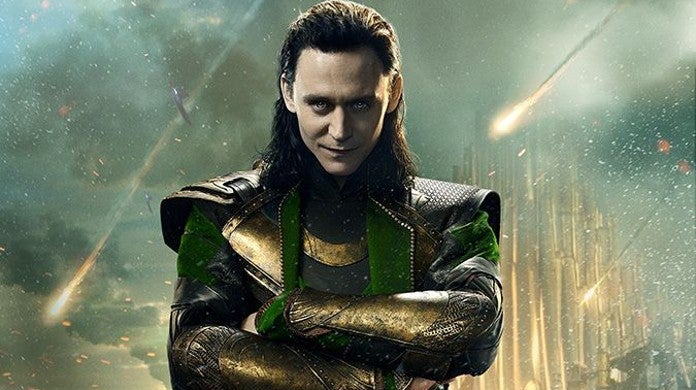
But it doesn’t matter, does it? Jane socked him one in the jaw in Thor 2, and we all considered it justice enough. We were excited when Thor broke him out of fancy jail to go on more shenanigans. We can’t help but like Loki.
Why?
In anticipation of Loki’s new limited series being released this summer, I’m writing this post to discover the answer to this simple question.
Well it doesn’t hurt that Tom Hiddleston is sexy as hell. I mean, look at this nonsense. He basically glows.
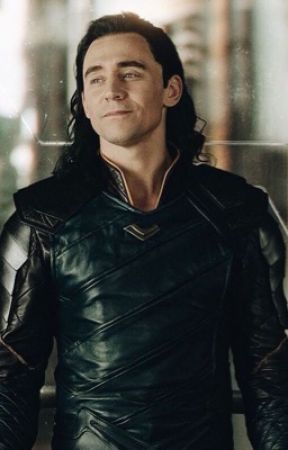
But as much as we all like to look at Hiddleston, we can’t attribute Loki’s likability to his sex appeal. There are plenty of sexy villains out there that we don’t like. In fact, there couldn’t be a better illustration of this than one of my favorite Netflix series: Lucifer. During the latest season, Lucifer’s identical twin brother, Michael, made an appearance. He was just as dreamy as Lucifer (since they’re both played by the same actor, Tom Ellis), but I, for one, found Michael slimy and self centered.
Oh man, clearly I have to do a post on Lucifer’s character, which I’m also fascinated by. But I’ll save that for when the final episodes are released — oh my god!! Next month! I audibly gasped when I looked that up just now, lol.
But right now we’re talking about Loki.
I could go on and on about the sort of character Loki is: tortured, misunderstood, charming, handsome, powerful, and mischievous. He wants to be good, but he just can’t help being tricksy. But if any of you know me, that sort of summary isn’t good enough. I want to know why we consider him tortured and conflicted. Why do we think he wants to be good, when he just got done calling all of humanity slaves? What did he say? What did he do? Exactly what was it that communicated this complex characterization to the viewers?
Yup, that’s right. I’m gonna go into way too much detail here.
Disappointment.
Loki was first introduced in Thor, which was fairly meh as a movie in my opinion. It was vital to the overarching Avengers plot, and it introduced a whole slew of main characters, Loki among them. (Any love for Darcy in here? I love that our favorite apathetic intern became an astrophysicist in time for WandaVision).
But overall, Thor was just okay. The soundtrack was bland, the Frost Giant antagonists didn’t have much motivation, and whoever dyed Chris Hemsworth’s eyebrows and beard and picked out his wig was fooling themselves.
And I was even disappointed in Loki at first. “Oh no, I grew up happy and healthy with a loving family but it turns out my dad isn’t my dad after all! Boo hoo! You’re all gonna die now!”
I mean, it was fine. So far as antagonist motivation goes, it’s not terrible. It’s also not super interesting.
But then this happened:
This was what did it for me.
But it’s nothing, right? It leads to nothing. It goes nowhere. He tries and fails to pick up a magic hammer. Big whoop. What was even the point of including it?
The obvious reason is that it proved Loki was not worthy to wield Mjolnir. That’s the purpose most people probably attribute to the short scene, then move on without thinking twice about it.
But this scene is where I first became fascinated with Loki’s character. So many little reasons why:
First, it’s the overly casual way he reaches for the handle. Almost like he doesn’t care.
Then, he tries to lift it one-handed, then uses both hands and really pulls. Just to make sure.
Finally, in how he looks up after he fails and adjusts his coat. He knew exactly what was going to happen before he tried. He knew he wouldn’t be able to lift it. But he tried anyway. He was disappointed anyway.
Not that he cares, right?
These twenty seconds illustrated more about his character than entire first hour of the movie.
I could have done it!
And Loki’s ending in that first movie was the perfect jumping off point for future appearances. The hurt, almost childlike fear on his face as he dangled over the edge of the rainbow bridge really tugs at your heartstrings.
And then he begs his father one last time to vindicate him. “I could have done it, Father! I could have done it! For you!”
Of course Odin was right to say, “No.” And the disappointment hardening to stubborn vengeance in his expression was chilling.
“He’s not my father!”
In Thor 2, Loki screams this line at Freya.
He screams it.
Cool, confident Loki — screaming? It’s such a shock for the viewer, a high contrast to what we’ve come to expect from him.
“Then, am I not your mother?” Freya asks in return.
And even though Loki answers, “You’re not,” nobody’s fooled. The hesitation and broken hearted expression say it all. He loves his mother dearly.
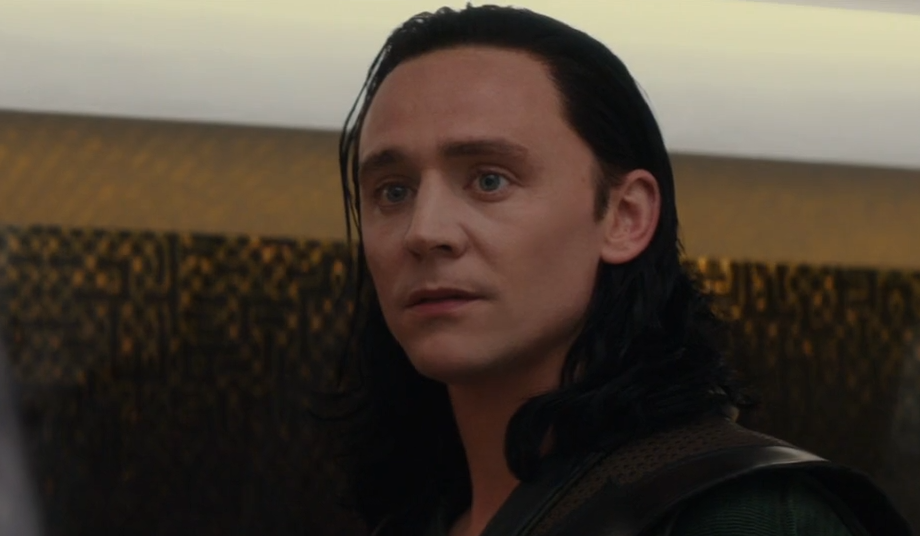
And it’s obvious how much he still loves his brother and father and craves their love in return. He is hurt and offended that they never visit him. Of course, there is no justification for his crimes, but this is a fascinating peak into his inner desires. He wants so badly to feel like a part of Odin’s family, but he can’t. And this is how we know.
No More Illusions
Loki’s pride is as much a part of his characterization as his mischievous tricks. After Freya dies, Loki’s first instinct is to pretend that everything is okay. He creates an illusion so that when Thor visits him in prison, everything is immaculate. There’s Loki, cool and collected as always.
But Thor knows better, and he tells Loki, “No more illusions.”
That’s when the viewer gets to see just how badly Loki’s grief has hit him.
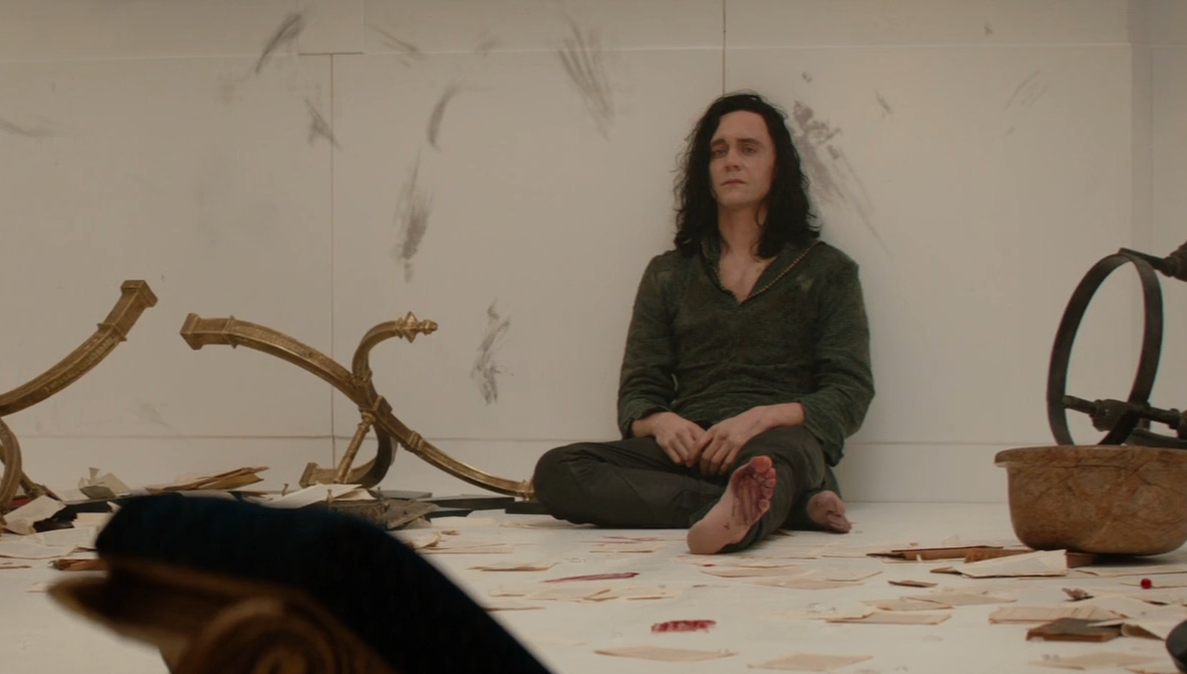
But the thing that interests me here is not the fact that Loki is sad. Of course he’s sad. It’s not unusual for a person to destroy things and hurt themselves when they’ve lost a loved one. Grief is no joke. Not for any character.
But as writers, we have to use these gut punches to illustrate a specific characterization. It’s not enough for Loki to be sad that his mother was killed. He has to display Loki-specific grief.
So not only did he destroy everything he owned in spectacular fashion, but he also pretended that he was okay. He put on his best face, and even hid the broken furniture.
And then in a particularly sympathetic display, he showed Thor the truth. He removed the illusion and allowed his brother to see just how bad things were. If anyone else had asked, he would have maintained the illusion, no matter the cost. Only someone he is truly close to gets to see this side of him.
“Now you see me, brother.”
“I have to get off this planet.”
Another of my favorite moments include when Loki shows real fear. First it was in Avengers 2012, when he hears thunder and knows Thor is coming for him.
But the real “Oh shit” moment came in Thor Ragnarok, which is one of my favorite MCU movies. It’s when Hulk makes an unexpected appearance, and Loki immediatley decides he needs to get off the planet.
Not just leave the arena, but flee the entire planet.
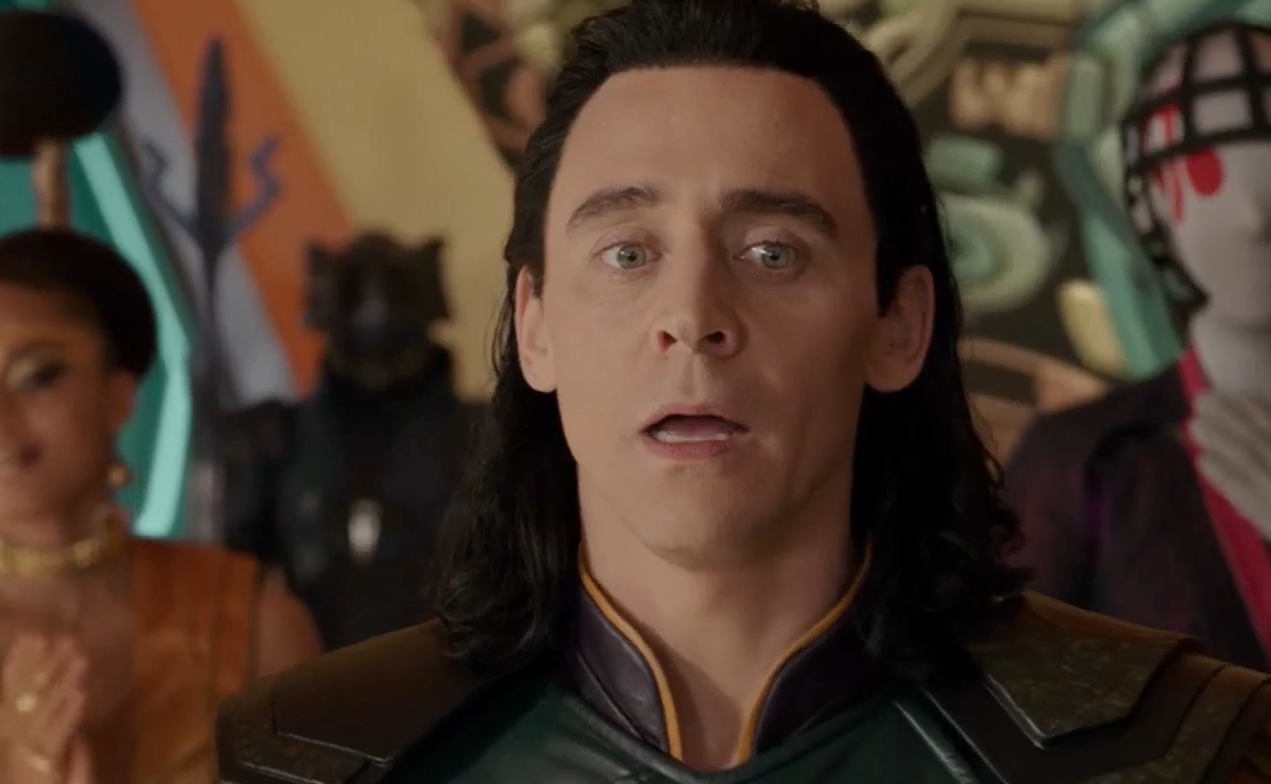
This is yet another facet of Loki’s personality. We’ve seen him scary, cocky, determined, clever, and charming. But this is outright fear. Little moments like these are doing double and triple duty:
- It’s a funny moment and it gets a good chuckle from the audience.
- It solidifies the fact that the Hulk is damn near unbeatable, even by someone as capable and indestructible as Loki.
- It rounds out Loki’s characterization just a little bit more and gives him a sympathetic side.
Again, it’s not enough for Loki to simply be afraid. He has to display a Loki-specific reaction to his fear. In the case of the Hulk, his reaction wasn’t to stand his ground or fight. His reaction was to run away, abandon all ambition he had for the Grandmaster, and save his own hide.
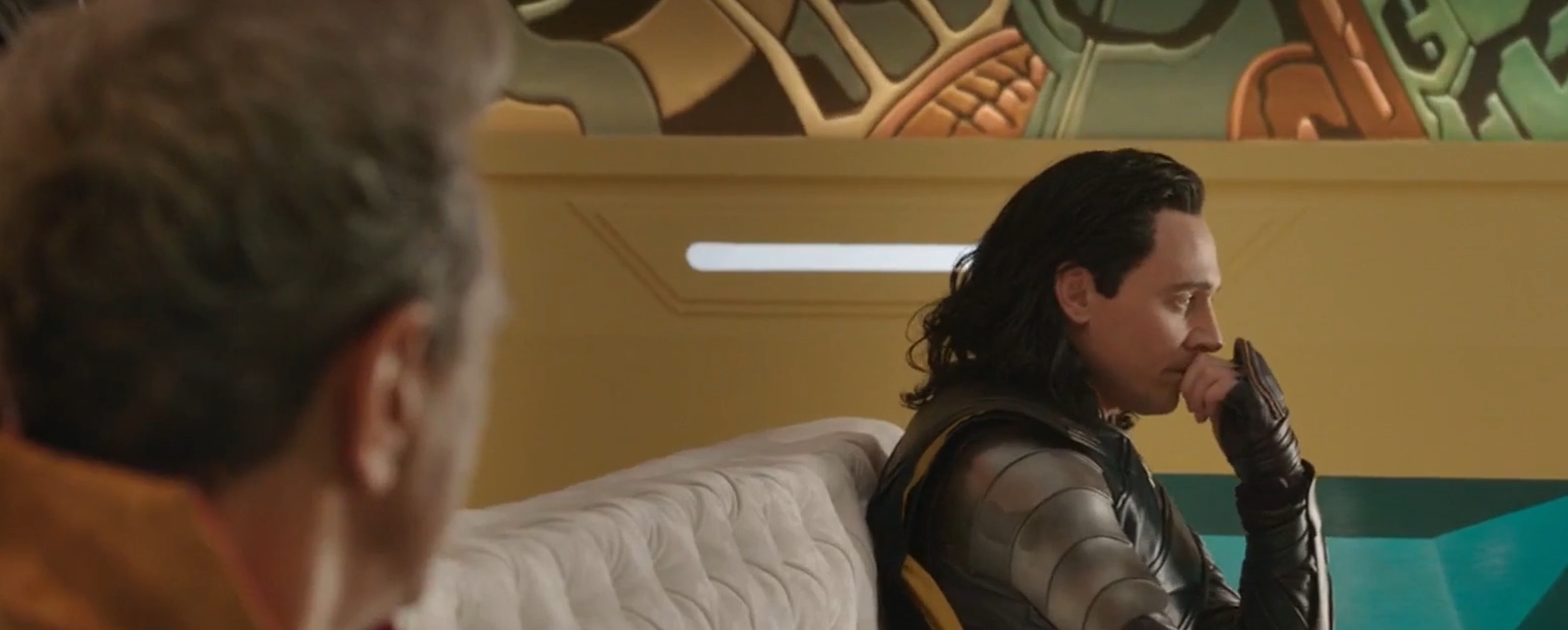
Lol, look how desperate he is not to be noticed by anybody.
“Get Help”
But at the end of the day, Loki’s biggest regret is that he simply doesn’t feel like he belongs with his family. As the brothers prepare to leave Sakaar, they have a quiet moment in an elevator. There they agree Loki should probably just stay on Sakaar, where his chaotic and power-hungry personality would work well for his ambitions.
“It’s probably for the best that we never see each other again,” Loki says.
“It’s what you’ve always wanted,” Thor agrees, thinking they’re on the same page.
But Loki’s miles away.
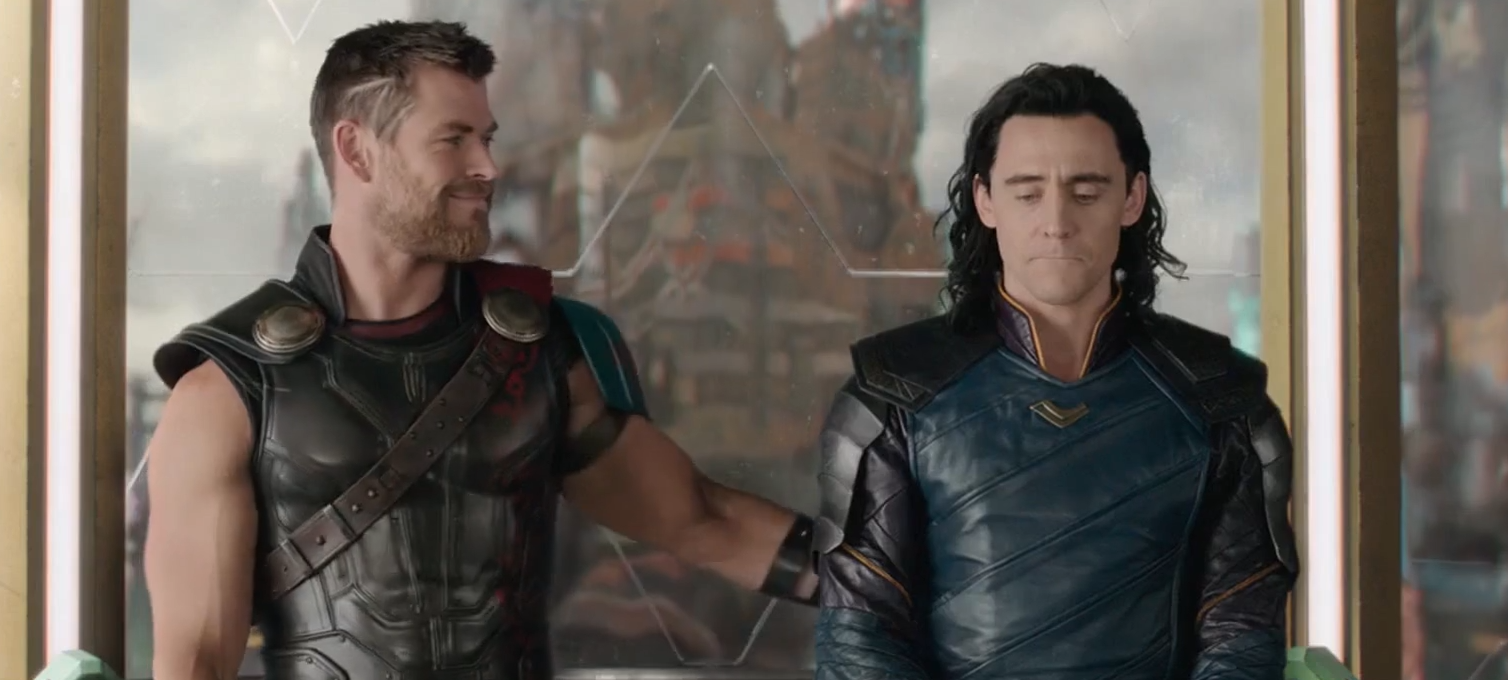
And then they do “Get Help,” which is by far one of my favorite gags in the movie.
So despite all the horrific and evil things he has done, despite constantly betraying people and wreaking chaos, we still want more of Loki. This is just further proof that it’s a really well executed character that truly makes or breaks a story. I can’t be the only one stoked for the limited series coming up in June.
I’m sure there are a dozen other little moments that help illustrate Loki’s round characterization, but I’ve spent hours on this post already. It’s getting out of hand. If I’ve left out your favorite Loki moment, let me know in the comments!
